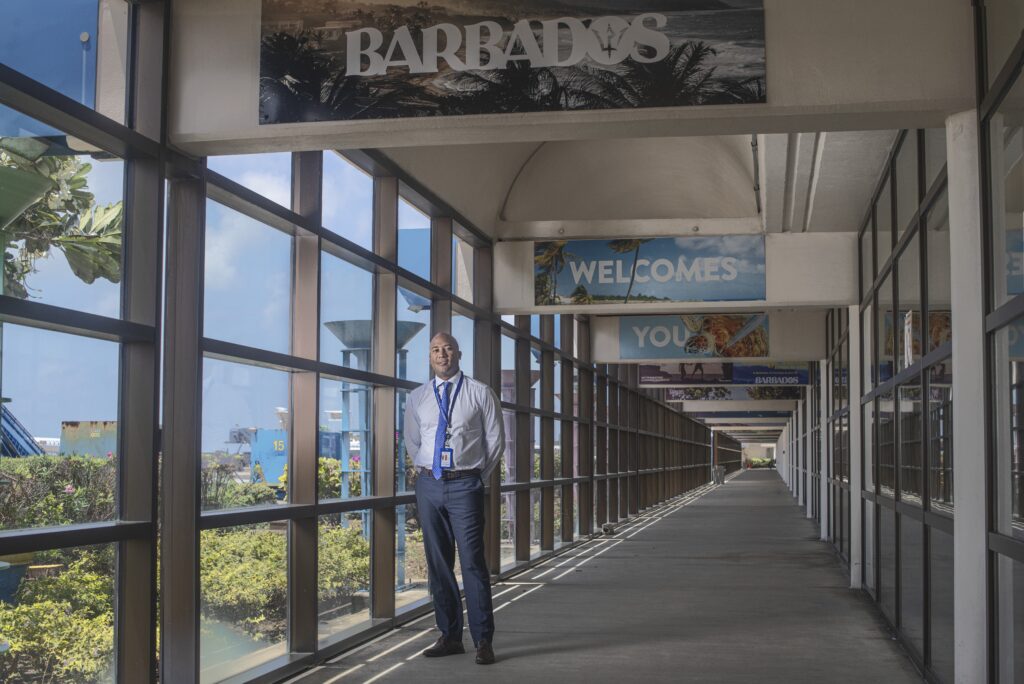Crisis in Barbados Transport Sector: AOPT Raises Concerns Over 'C' Licence Plate Misuse

February 2, 2025
The Alliance Owners of Public Transport (AOPT) raises concerns over misuse of 'C' licence plates leading to unauthorized taxi services, impacting legitimate public service vehicle (PSV) operators in Barbados.
The Alliance Owners of Public Transport (AOPT) has sounded the alarm over what it sees as a growing crisis in the transport sector, caused by the introduction of ‘C’ licence plates for commercial vehicles.
AOPT chairman Roy Raphael said the misuse of these plates is leading to widespread “pirate lifts”, which unfairly compete with licensed public service vehicles (PSVs).
The ‘C’ plates, introduced by the Barbados Licensing Authority (BLA) in September 2023, were originally intended for vehicles owned by companies, partnerships, or sole proprietors for business purposes. However, Raphael said some individuals were exploiting this system, using the plates to operate illegal taxi services.
Alternative service
Raphael warned that the unauthorised use of these plates is cutting into the livelihoods of legitimate PSV operators by offering passengers an alternative service that does not adhere to the same regulations.
“It is becoming a concern to us, as operators in the public transport sector, to see how the Government has introduced a new plate called the ‘C plate,’ which is a commercial plate. A number of people are using those plates to pirate lifts. They are basically hiring out their cars, which is a breach of the arrangement between them and the Barbados Licensing Authority,” Raphael said.
He explained that because the ‘C’ plates resemble official PSV plates, the public is often confused about whether a vehicle is legally permitted to operate as a taxi or minibus because the plates look similar to PSVs.
“This is a serious problem,” he added.
Increasing competition
The AOPT is urging Government to clarify its position on the ‘C’ plates and how it expects the PSV sector to survive in the face of increasing competition from unregulated transport operators.
Raphael also called for stronger law enforcement to curb illegal operations.
“The law is there, but the important thing is to have people policing it. As far as we are concerned, these fellows have basically cut into our pocket. We pay high insurance. Some of us still pay road tax and yet we see a reduction in passengers while the number of vehicles on the road is increasing.”
Under the Transport Authority Regulation, pirate transport operators can face fines of up to $5 000 or imprisonment for six months. However, Raphael argued that enforcement was lacking, and the problem would worsen if left unchecked.
To address these concerns, the AOPT is proposing a change in the design of the ‘C’ plates to distinguish them more clearly from PSV plates.
“What we are suggesting is that the Government change the background of the ‘C” plate from white to blue so they can be clearly identified. You can’t have a commercial vehicle and a public service vehicle in the same colour,” Raphael said.
He noted that AOPT has raised the concerns multiple times with the relevant authorities, but little has been done.
“We have written to the authorities, but the response has been silent. The passengers also need to understand that by using these illegal services, they are aiding and abetting an offence,” he said.
The Sunday Sun made several attempts to reach Minister of Transport and Works Santia Bradshaw for comment but was unsuccessful.
Raphael said the Transport Board should expand its fleet to reduce reliance on pirate taxis and that illegal operators should be required to apply for legitimate permits.
“If you want to move passengers, apply for a permit. Follow the law. That’s all we are asking.” (CLM)


